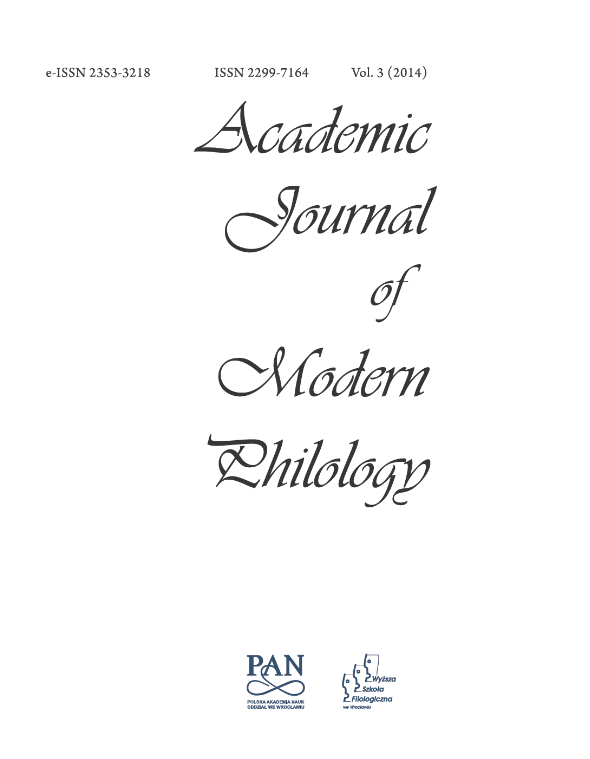Neoarystoteliczna wizja natury ludzkiej w ekopoezji i eseistyce Gary’ego Snydera
A Neo-Aristotelian Vision of Human Nature in the Writings of Gary Snyder
Author(s): Piotr ZazulaSubject(s): Philosophy, Language and Literature Studies, Poetry, Studies of Literature
Published by: Komisja Nauk Filologicznych Oddziału Polskiej Akademii Nauk we Wrocławiu
Keywords: Gary Snyder; ecopoetry; environmentalism; the wilderness; human nature; Neo-Aristotelian philosophy; Terry Eagleton
Summary/Abstract: Close-reading selected poems and essays by Gary Snyder, the article examines an apparent epistemological contradiction in Snyder’s environmentalist message. As a rule Snyder consistently relies on essentialist discourse, with his frequent references to human nature, the collective unconscious, mankind’s generic identity and man’s inner voice. In the poem The Call of the Wild, however, he questions man’s ability to retrieve a “natural” generic core through, say, meditation or vision quests. This apparent contradiction is resolved when one views Snyder’s work through the lens of Neo-Aristotelian thought as exemplified by Terry Eagleton’s concept of human nature. To Eagleton, like to Aristotle, human nature is not a static biological given, but rather a mental predisposition. Thus it is more of a task, or challenge, than a set of characteristics. Such ideas resonate with Snyder’s concept of the ever-changing human nature. However, Eagleton and Snyder pass company as fellow Neo-Aristotelians when it comes to the socio-political applications of their ideas. To the British critic, socialism is the answer, allegedly providing the optimal conditions for a harmonious blend of one’s private and public self. To Snyder, state-supported socialism is but another oppressive political system, very much in the mentally-restrictive tradition of what he calls “the Judaeo-Capitalist-Christian-Marxist West.”
Journal: Academic Journal of Modern Philology
- Issue Year: 2014
- Issue No: 3
- Page Range: 137-156
- Page Count: 20
- Language: Polish

